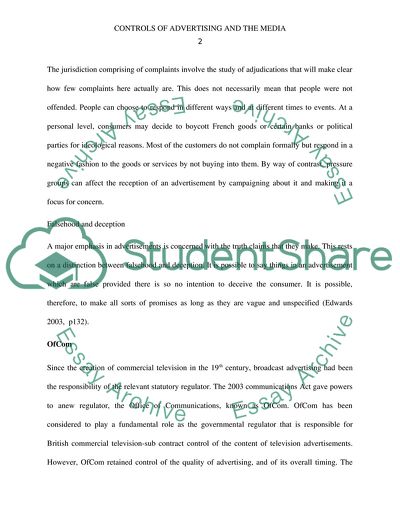Cite this document
(Controls of Advertising and the Media Essay Example | Topics and Well Written Essays - 1500 words, n.d.)
Controls of Advertising and the Media Essay Example | Topics and Well Written Essays - 1500 words. https://studentshare.org/marketing/1752822-controls-of-advertising-and-the-media
Controls of Advertising and the Media Essay Example | Topics and Well Written Essays - 1500 words. https://studentshare.org/marketing/1752822-controls-of-advertising-and-the-media
(Controls of Advertising and the Media Essay Example | Topics and Well Written Essays - 1500 Words)
Controls of Advertising and the Media Essay Example | Topics and Well Written Essays - 1500 Words. https://studentshare.org/marketing/1752822-controls-of-advertising-and-the-media.
Controls of Advertising and the Media Essay Example | Topics and Well Written Essays - 1500 Words. https://studentshare.org/marketing/1752822-controls-of-advertising-and-the-media.
“Controls of Advertising and the Media Essay Example | Topics and Well Written Essays - 1500 Words”. https://studentshare.org/marketing/1752822-controls-of-advertising-and-the-media.


